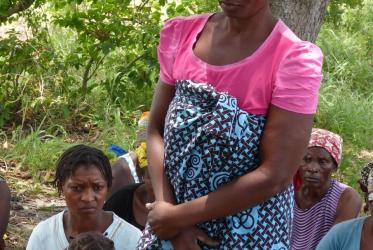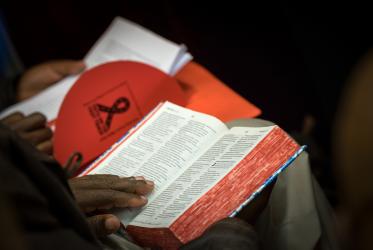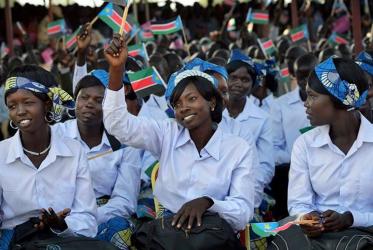Displaying 161 - 180 of 239
An interview with the Ethiopian Patriarch, Abune Matthias
14 February 2017
Entrevista con el patriarca etíope Abune Matías
14 February 2017
Patriarch Matthias: “Peace is the message of every day”
10 February 2017
El patriarca Matías: “La paz es el mensaje de cada día”
10 February 2017
Food and land justice focus of Mozambique workshop
19 December 2016
East African communities discuss disability, theology
17 November 2016
Faith communities explore concrete climate action at COP22
10 November 2016
Bible study gives hope as youth reflect on HIV
02 November 2016
Kenya: Voice of faith communities crucial in overcoming HIV
14 October 2016
Honest talk blossoms between youth, theologians in Cote d’Ivoire
14 September 2016
Peacebuilding from below: The role of local civil society in South Sudan
28 September 2016
Geneva, Maison de la Paix (Auditorium Ivan Pictet B)
Churches call for peaceful dialogue in Ethiopia
19 August 2016





